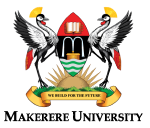Your quick guide on talent and labor compliance norms in Uganda
Capital
Kampala
Currency
Ugandan Shilling (UGX)
Languages
Swahili, English
Payroll Frequency
Bi-weekly, Monthly
GDP per Capita
$934.90
Employer Tax
10%
Talent Overview
Uganda is a landlocked country in East Africa with an economic freedom score of 54.2 making it the 127th freest in the world. The country boasts a middle ranking of 24th among 47 countries in Sub-Saharan Africa. Uganda’s main economy relies on agriculture, making up 71.9% of its GDP. Only second to Ethiopia, coffee alone accounts for 17% of the country’s exports.
Major economic hubs:
Kampala, Mbarara, Gulu
Skills in demand:
Agricultural Professionals, Management Professionals, ICT Professionals, Medical Professionals

Local Universities
The top local universities in Uganda are as follows:

Local: 1
World : 1765

Local: 2
World : 5764

Local: 3
World : 7065

Local: 4
World : 7170

Local: 5
World : 7649
Salary Data
The table contains the average monthly salary in Uganda
| No. | Job Title | Average Monthly Salary (in UGX) | Average Monthly Salary (in USD) |
| 1 | Information Technology Manager | 4,400,000.00 | 1,171.98 |
| 2 | Network Engineer | 2,360,000.00 | 628.61 |
| 3 | Developer / Programmer | 2,670,000.00 | 711.18 |
| 4 | Project Manager | 3,000,000.00 | 799.07 |
| 5 | Database Administrator | 2,570,000.00 | 684.54 |
| 6 | Business Analyst | 3,400,000.00 | 905.62 |
| 7 | Business Development Manager | 4,100,000.00 | 1,092.07 |

Talent Sourcing Tips
Brighter Monday, Ugandan Jobline, Uganda Job
961, 700
Hiring in Uganda requires you to be aware of the local employment laws, benefits, payroll, and taxes. Below is everything you need to know to successfully onboard talents from Uganda.
Contracts in Uganda can either be written or oral. However, for the contract to be binding, employers should provide a written contract before starting employment. There is no mandatory language requirement for employment contracts in Uganda; however, the document must be understood by the employee.
The probationary period for new employees is up to 6 months.
| Date | Name | Type |
| 1 Jan | New Year | Public Holiday |
| 26 Jan | Liberation Day | Public Holiday |
| 8 Feb | Prešeren Day | National holiday |
| 16 Feb | Remembrance of Archbishop Janani Luwum | Public Holiday |
| 8 Mar | International Women’s Day | Public Holiday |
| 8 Apr | Funeral of Jacob Oulanyah | Public Holiday |
| 15 Apr | Good Friday | Public Holiday |
| 17 Apr | Easter Sunday | Observance |
| 18 Apr | Easter Monday | Public Holiday |
| 27 April | Day of Uprising Against Occupation | National holiday |
| 1 May | Labour Day | Public Holiday |
| 2 May | Eid al-Fitr | Public Holiday |
| 2 May | Labour Day holiday | National holiday |
| 3 Jun | Martyr’s Day | Public Holiday |
| 5 Jun | Whit Sunday | National holiday |
| 9 Jun | National Heroes Day | Public Holiday |
| 9 Jul | Eid al-Adha | Public Holiday |
| 9 Oct | Independence Day | Public Holiday |
| 1 Nov | Remembrance Day | National holiday |
| 25 Dec | Christmas Day | Public Holiday |
| 26 Dec | Independence and Unity Day | National holiday |
| Type of leave | Time period | Mandatory |
| Annual leave/Earned Leave | At least 21 days | Yes |
| Maternity Leave | 60 days | Yes |
| Sick Leave | 30 days | Yes |
Payroll
Payroll Cycle
Workers are paid either monthly or bi-monthly.
Minimum Wage
The minimum wage in Uganda is UGX 130,000.00 per month.
Overtime Pay
Overtime pay in Uganda is usually 150% of the regular pay rate with holidays and weekends amounting to 200% of the regular pay rate. The hours spent working must not exceed 10 hours a day for at least 3 weeks or a total of 56 hours per week.
Bonus
The 13th-month pay is customary in Uganda.
Full-time employees in Uganda are ensured to have insurance benefits such as
Taxes
| Contribution | Rate (%) |
| National Social Security fund | 10 |
| Contribution | Rate (%) |
| National Social Security fund* | 5 |
*As of 2021, according to the National Social Security Fund Act of 2021, employees can voluntary contribute above the standard rate. Self-employed people can also apply for voluntary contributions.
Resident Individuals
| Taxable Base (UGX) | Tax on Column 1 (UGX) | Tax on Excess (%) |
| 0 – 2,820,000 | – | 0 |
| 2,820,001 – 4,020,000 | – | 10 |
| 4,020,001 – 4,920,000 | 120,000 | 20 |
| 4,920,001 – 120,000,000 | 300,000 | 30 |
| 120,000,001 and above | 34,824,000 | 40 |
Non-resident Individuals
| Taxable Base (UGX) | Tax on Column 1 (UGX) | Tax on Excess (%) |
| 0 – 4,020,000 | – | 10 |
| 4,020,001 – 4,920,000 | 402,000 | 20 |
| 4,920,001 – 120,000,000 | 582,000 | 30 |
| 120,000,001 and above | 35,106,000 | 40 |
The standard VAT in Uganda is 18%.
Offboarding & Termination
Employers must provide written notice for termination or pay in lieu of notice specifying valid reasons under the labor code of Uganda. An employee terminated unfairly is entitled to four weeks’ worth of wages.
Employees, on the other hand, may terminate the contract with or without notice provided that there is misconduct on the part of the employer and before the expiry of the notice of termination.
The notice period for probationary and regular employees ranges from 2 – 3 weeks.
The severance pay is under the provisions of the agreement between the employer and employee. However, employees are entitled to severance pay with at least 6 months of continuous service.
Visa and Immigration
Apply for a business visa to Uganda requires you to submit the application form electronically (email) and will be studied by an Immigration Officer. Once approved, the document will be sent electronically (email), which can be printed or presented upon entering the country.

Apply for a business visa to Uganda requires you to submit the application form electronically (email) and will be studied by an Immigration Officer. Once approved, the document will be sent electronically (email), which can be printed or presented upon entering the country.
The successful application of a visa, however, does not guarantee entry into the country. There will be secondary verification travelers need to go through.
Travelers must present at least 6 months of validity of the passport.
The usual cost for a visa application is as follows:
Transit
Multiple Entry